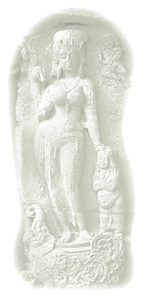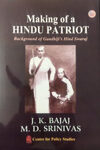ANNAM BAHU KURVITA:
STUDIES IN FOOD AND AGRICULTURE
The Centre has been carrying out intensive research on the classical Indian discipline of growing and sharing food in abundance, in the perspective of currently prevailing scarcity and hunger in the country. This programme of ours, we believe, most closely conforms to the mandate of the Centre to comprehend the current Indian situation in the perspective of the essential timeless Indian civlizational genius; and to effectively intervene to help in transforming the public life of India such that it begins to conform to the Indian seekings and preferences.
We have compiled information on food production and availability for almost all countries of the world, and thus we have been able to bring to national focus the fact that average Indian consumption of staple foods is among the lowest in the world. This information, along with other relevant statistical information about the agricultural economy of India, has been published in 1995 in the form of a mimeographed book entitled, Indian Economy and Polity. (Read the Article)
On the other hand, we have been able to authentically establish that classical India strongly articulated and faithfully followed a rigorous discipline of growing and sharing food in plenty. We have shown how this discipline has been advocated in all civilizational texts of India, including the Vedas, Itihasas, Sastras and Puranas; how it continued to be followed in India till the end of the eighteenth century; and how the discipline was systematically denigrated and largely broken during the period of British domination in India. The Centre’s work on this subject has been published in the form of a book, Annam Bahu Kurvita: The Indian Discipline of Growing and Sharing Food in Plenty. The book has been published separately in Hindi, English and Tamil. The Hindi and English versions of this book were published in 1996, and the Tamil version in 1998. (See Details of the Book)
To discuss this work of the Centre and the Indian discipline of growing and sharing food in plenty, some of the highest Acharyas, the highest teachers of classical Indian learning, met in an unusual conference at Sri Tirumala, organised by the Centre in collaboration with the Tirumala Tirupati Devasthanams. The Acharyas were of the opinion that this work of the Centre is of seminal importance in correctly apprehending the basic attributes of classical Indian thought, and in turning the nation’s attention to the most crucial aspect of national economy and polity. The Sadas was held in October 1996 to coincide with the publication of the Hindi and English versions of the book mentioned above. (Read about the Tirumala Sadas)
Later in August 1997, in collaboration with the Observer Research Foundation at Delhi, the Centre organised a Seminar at the Parliament House Annex to deliberate upon the Indian discipline of growing and sharing food in abundance and the current state of hunger and scarcity. The Seminar was inaugurated by the Union Minister for Agriculture, Sri Chaturanan Mishra, and was attended by the high political leaders representing almost all major parties. Those who participated in the seminar included the present prime minister of India, Sri Atal Behari Vajapayee, former prime minister, Sri Chandra Sekhar; and Sri L. K. Advani, Sri Murli Manohar Joshi, Su Sri Uma Bharati, Sri G. K. Moopanar, Sri Jitendra Prasada, Sri Pranab Mukherji, Sri D. Raja, Sri Nitish Kumar and Sri Ajit Singh, besides many Parliamentarians. Held on the eve of the fiftieth anniversary of Indian Independence, the seminar focused attention on one of the most urgent problems facing the country today, and helped in evolving a consensus on the urgency of the problem. The proceedings of the Seminar have been published in the form of a book. (Read the Proceedings: Food for All)
The Centre has continued to pursue work in this area. Articles on the subject have been published in the Journal Manushi edited by Madhu Kishwar (Read the article), in The Organic Farming Sourcebook compiled by Claude Alvares, and in Sustainable Agriculture and Food Security: The Impact of Globalisation edited by Vandana Shiva. Recently, we have also published a long essay summarising and updating some of the information in Annam Bahu Kurvita. The essay has been published in 2001 by the Indian Institute of Advanced Study, Simla, in the form of a book entitled Restoring Abundance: Regeneration of Indian Agriculture to Ensure Food for All in Plenty.
It is generally believed that the issue of food and agriculture is going to become of central importance in Indian public life in the near future; through its research work during the year the Centre has probably set the direction in which we shall have to think and act on this issue.
Proposed Future Work
We propose to update the statistical information on the production and availability of food in India in comparison with other major countries of the world. We had earlier collected this information in the early 1990’s and presented in the compilation Indian Economy and Polity. It is important to look at this data again in the context of the developments of the last decade or so.
We also plan to study in some detail the experience of China, Indonesia and other Asian countries in the matter of food and agriculture. It is hoped that this work shall offer further insights into the importance of the discipline of abundance and sharing.
We propose to look at other aspects of the Indian situation, especially the aspects concerning polity and governance, in the light of the classical Indian understanding of these issues. Such work shall follow the perspective and style of Annam Bahu Kurvita and shall enrich our understanding of both the Indian tradition and the Indian situation of today.



